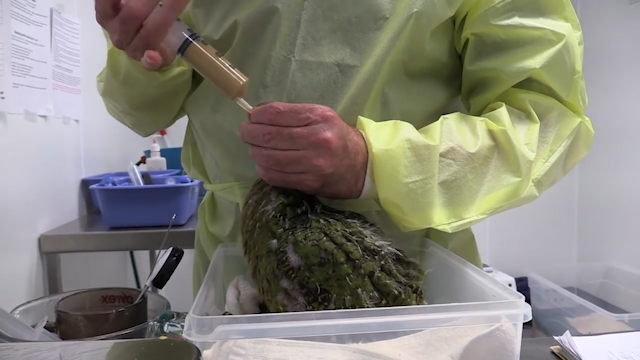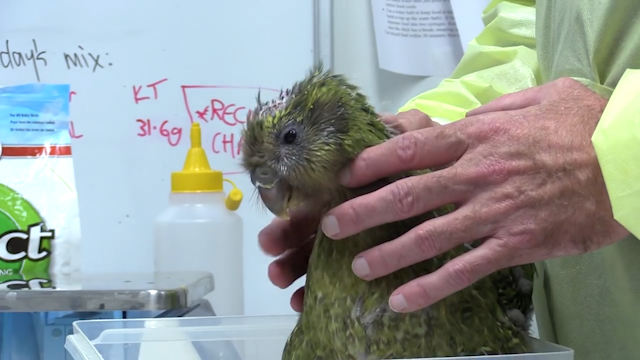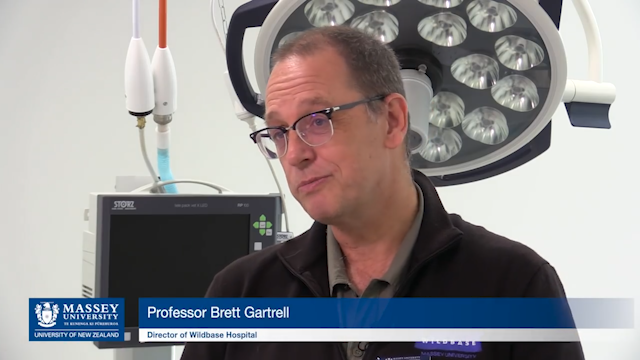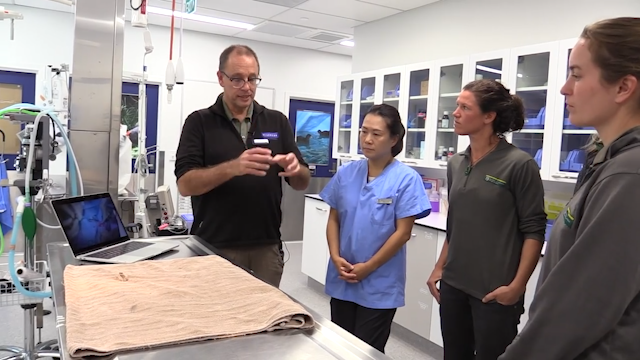World-First Surgery:Surgery Saves Rare Kākāpō Chick
A Historic Surgical Breakthrough
Surgical breakthrough efforts have saved the life of a critically endangered kākāpō chick in New Zealand. For parrot lovers, this story showcases the incredible resilience of these birds and the passion of people working to protect them. At just a few weeks old, this rare chick underwent a complex brain surgery—the first of its kind in the avian world.

Unusual Condition in a Precious Chick
The chick, known as Espy 1B, was born on Whenua Hou/Codfish Island under the care of the Kākāpō Recovery Team. Rangers discovered a lump on its skull shortly after hatching. A CT scan revealed a condition called meningoencephalocoele—a hole in the skull allowing brain tissue to bulge out. This is very rare in birds.
Such a condition left the bird exposed to brain trauma and infection. With only 144 kākāpō left, every life counts. The team made a brave decision: surgery was the only option.

World-First Surgical Breakthrough at Wildbase Hospital
Air New Zealand flew the chick to Massey University’s Wildbase Hospital for surgery. Professor Brett Gartrell led a national team of veterinarians to perform the delicate operation. They adapted human and mammal surgical methods to suit avian anatomy—a world-first surgical breakthrough.
The team carefully removed the herniated brain tissue and patched the skull using a synthetic mesh infused with bone marrow. The procedure was risky, but it worked.

Remarkable Recovery
Espy 1B recovered quickly and showed normal growth and behavior shortly after the surgery. The chick will soon be returned to Dunedin Wildlife Hospital and paired with another chick to reduce human imprinting.
Parrot lovers around the world can find hope in this story. It reminds us that science and compassion can save lives.

How to Care for Baby Parrots
Caring for baby parrots takes time, patience, and the right knowledge. Follow these expert tips:
- Warmth is vital: Keep baby parrots in a brooder at a stable temperature of 35°C (95°F), then lower gradually.
- Feeding: Use vet-recommended hand-feeding formula. Feed at regular intervals, using sterilized tools.
- Social bonding: Talk gently to build trust. Avoid loud sounds and rough handling.
- Clean environment: Keep their space clean to avoid infections, especially in weak chicks.
- Monitor health: Watch for signs of slow growth, diarrhea, or lethargy. Consult an avian vet promptly.

Tips for Adult Pet Parrot Care
- Balanced diet: Offer fruits, vegetables, pellets, and seeds. Avoid sugary and salty snacks.
- Mental stimulation: Provide toys, puzzles, and social interaction daily.
- Regular vet visits: Annual checkups help detect early health issues.
- Safe space: Ensure your home is parrot-proofed. Avoid toxic plants and open windows.
- Emotional care: Parrots form strong bonds. Spend quality time and talk to them every day.

A Model of Conservation Innovation
This surgical breakthrough not only saved a chick but also advanced avian medical science. Professor Jan Thomas, Vice-Chancellor at Massey University, praised the innovation and teamwork. Wildbase Hospital’s work exemplifies how research, passion, and expertise can support endangered species.
For parrot lovers, this is more than just a medical feat—it’s a symbol of hope. With proper care, attention, and love, parrots can overcome even life-threatening challenges.

Conclusion: What Parrot Lovers Can Learn
This surgical breakthrough reminds us that parrots are delicate, intelligent, and worthy of every effort to protect them. Whether you’re caring for a baby parrot or supporting conservation from afar, your actions make a difference.
Parrots are not just pets; they are companions with emotional and physical needs. By following proper care guidelines and supporting conservation efforts, you help secure their future.



1 Response
[…] Emotional support: Speak to them softly and offer comfort during stressful times. […]